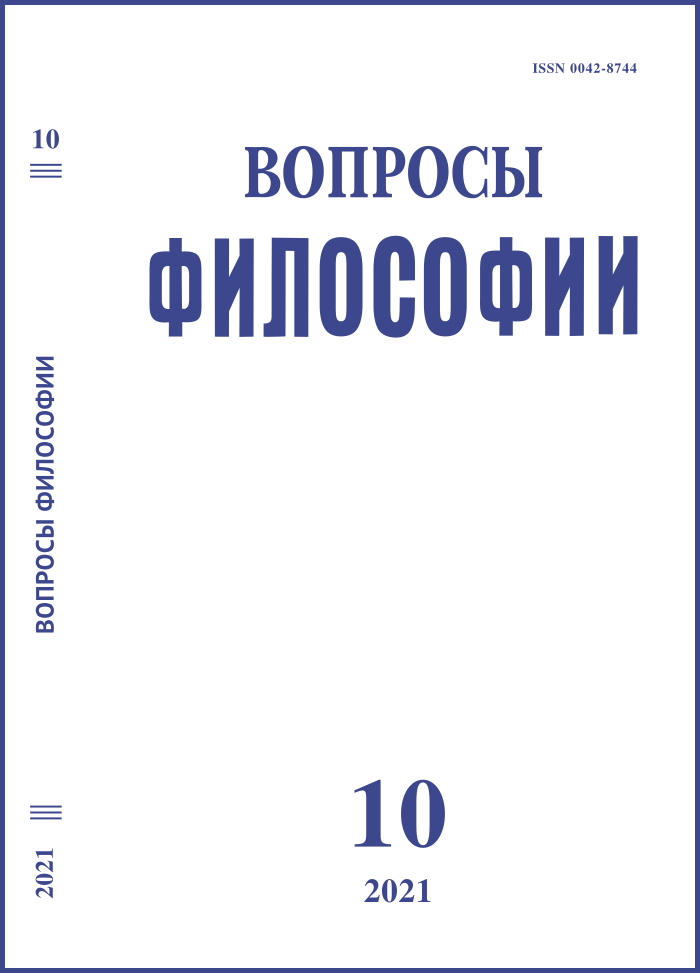Current Methodological Problems of the Research of N. Berdyaev’s Heritage
DOI:
https://doi.org/10.21146/0042-8744-2021-10-123-129Keywords:
N. Berdyaev, Russian religious philosophy, the Cambridge school of intellectual history, secularization theories, “new religious consciousness”Abstract
The article works out the methodology of intellectual history applicable to the complex approach to the philosophy of N. Berdyaev. The current discussions on Berdyaev’s heritage consider Berdyaev’s work in the context of the world history of thought. Nevertheless, there is no consensus not only on the question of which philosophical school Berdyaev belongs to, but even on the problem of attributing Berdyaev’s figure to certain discipline. Thus, a comprehensive methodology of intellectual history, based on the ideas of the Cambridge school (Q. Skinner) and secularization theories, is relevant to tackle this task. The approach developed by the author aims to consider the texts of the philosopher as real actions carried out in a particular social and political context to make a valuable impact on it. In contrast to the political texts traditionally considered in Cambridge approach, in the case of studying religious philosophy this methodology should also consider the relationship of philosophical discursive practices with religious discourse, religious practices and institutional church relations regulating them. The application of these methodological considerations to the research of Berdyaev’s philosophy demonstrates prospects of study the influence of political and religious discussions at the beginning of the 20th century on the formation of the late doctrine of the philosopher

